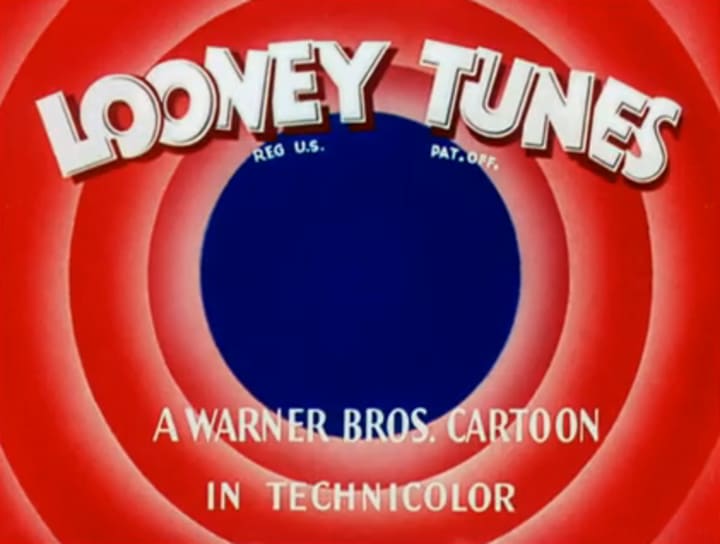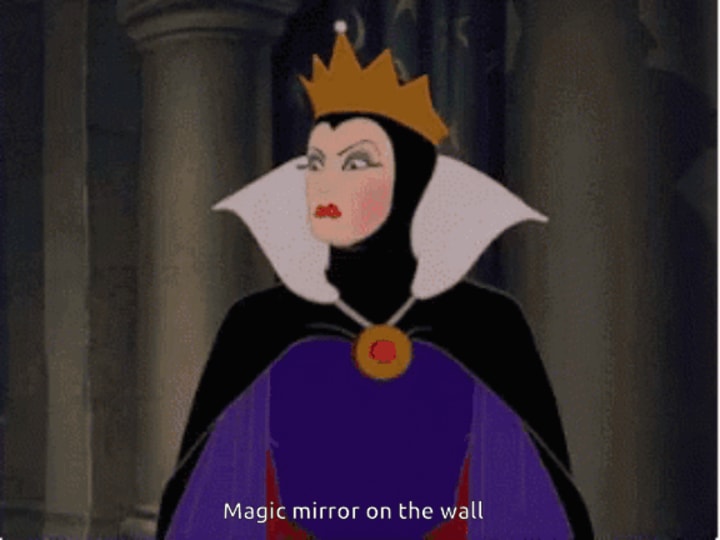We got it wrong all along
The little known fact about how we as a society remember things incorrectly

A quick memory test
If I asked you to describe what the Monopoly mascot looked like, what would you say? Your answer might have included his iconic posh monocle.
Or maybe I asked you to name the cartoon show that featured famous characters such as Bugs Bunny, Daffy Duck, and Tasmanian Devil? You’d say Looney Toons, right?
Perhaps you've watched Star Wars: The Empire Strikes Back and I asked you to quote that famous line. You'd look at me square in the face and say “Luke, I am your father”.
What if I told you that your memory surrounding all three instances were actually wrong?
It’s because, as confident as you might have been with your answers, the Monopoly man’s monocle, Looney Toons, and the quote “Luke, I am your father” did not exist.

The Monopoly man did not have a monocle.

The cartoon with our beloved characters hailed from Looney Tunes.
And finally, Darth Vader nearly gave Luke Skywalker a heart attack when he confessed “No, I am your father”. Yes, I know this last one in particular will be hard to accept but skip to around 1 minute 52 seconds in this post for the shocking truth.
In all three cases, what you experienced was the type of false memory called the Mandela Effect.
What is a false memory?
To comprehend the uncommon knowledge surrounding the Mandela Effect, it is important that you first understand what a false memory is.
False memory, a term in the field of psychology that was first studied by psychologists Sigmund Freud and Pierre Janet, is the cognitive focus that explores an individual’s tendency to remember a particular piece of information differently to the way it truly occurred. Sometimes an individual may strongly remember whole situations that did not happen.
Science states that many factors may encourage false memories, from unidentified misinformation, similar memories conflicting and merging into one inaccurate memory, or through The Power of Suggestion - a cognitive process pioneered by psychologist Emile Coue.
What is the Mandela Effect?
The Mandela Effect is “collective false memories”. In other words, it is the weird phenomenon of a large group of people misremembering a shared bit of information that they thought was common knowledge.
The Mandela Effect got its name from the strange situation author Fiona Broome found herself in. Fiona described how she once remembered the broadcast coverage surrounding Nelson Mandela’s death in prison during the 1980s. She was able to recall the memory so vividly that she even included detail about the public speech that was made by Mandela’s widow. Except, Nelson Mandela had not died, he was very much alive during the 80s. In actuality, Fiona Broome had at the time unknowingly recalled a false memory.
Fiona was not alone with this. Hundreds of people thought that Nelson Mandela had passed away in prison. So, when news got out that he was released on February 11th 1990, for many, a complete sense of shock was all they could express - what they thought was an accurate memory of his death in prison was actually false.
Other examples of the Mandela Effect
There have been many recent instances where large pockets of society have experienced the Mandela Effect.
Snow White And The Seven Dwarfs
When Disney buffs thought of Snow White And The Seven Dwarfs, many were quick to quote the evil queen’s famous: “mirror mirror on the wall”. However, the evil queen did not say that. Instead, her line started off as “magic mirror on the wall”.

There were numerous reasons why people misremembered this quote. Most notably, the original tale of Snow White was written by The Brothers Grimm which introduced the line “mirror mirror on the wall”.
Queen - We Are The Champions
Die-hard fan or not, We Are The Champions was a melodic cult classic by Queen that many of us knew and loved. Whether at home or during karaoke, the very end of the song was usually met with the enthusiastic proclamation “we are the champions, of the world!”
However, we are not champions of the world, at least that’s not what the song suggested at the end. If you skip to around 2 minutes 40 seconds of this tune, you’d find that it finished with “we are the champions”.
The most obvious reason why music lovers misremembered the ending was down to the fact that the line “we are the champions of the world” did actually exist earlier in the song. So, by the time someone heard that final chorus, they expected the famous line to repeat, but it didn't.
Pikachu’s Tail
Anime fans remembered Pikachu as a mouse-like Pokémon and Ash Ketchum’s best friend. Many also remembered Pikachu's distinctive black tip at the end of his tail. Unfortunately, this recollection was also the product of the Mandela Effect as Pikachu never had a black tail tip.

It was considered that the most logical reason why there was such a widespread collective false memory was that fans merged the memory of Pikachu's black tips at the end of his ears and created an incorrect recollection of his tail.
Final thought
While the accepted scientific reasoning is that the Mandela Effect is the product of collective false memory, there are many who revel in the idea that the Mandela Effect is an indication of alternative universes, where we may at times collectively dip in and out of and recall the events of the alternative world as opposed to our own. Some even associate the Simulation Hypothesis and the “glitches in our reality” as an argument as to why society periodically experiences the Mandela Effect.
Regardless of theory, the Mandela Effect is a fascinating, and potentially, a little frustrating phenomenon.
Did you enjoy my uncommon knowledge? Please show your love and give it a ♥️.
About the Creator
Fiona Teddy-Jimoh
Finding innovative ways to connect creative writing with technology in order to deliver an immersive digital experience.
My name is Fiona Teddy-Jimoh and welcome to my world.






Comments
There are no comments for this story
Be the first to respond and start the conversation.